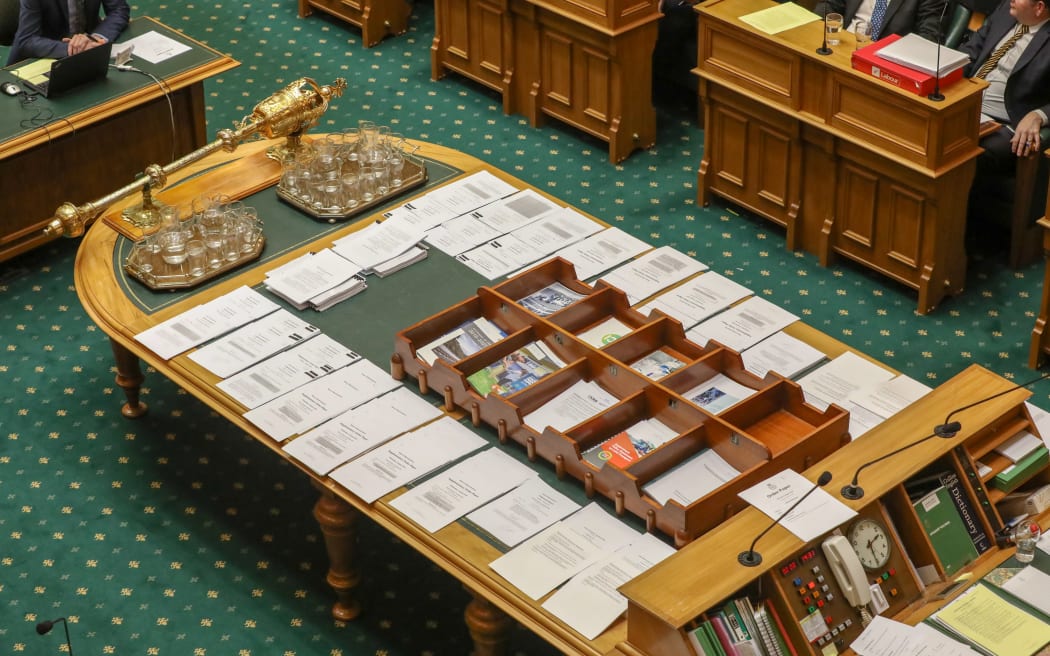It’s a common occurrence in the House for opposition MPs to ask to “seek leave to table a document”, but have you wondered what this really means?
Initially the phrase threw me a bit. Why must leave be sought from the Speaker; is it about getting permission for the MP or their staff to dash out of Parliament and run down town to retrieve the document from the department, before coming back twenty minutes later to present it?

Feel the paper vibe: the big table in Parliament's chamber. Photo: VNP / Phil Smith
No. Seeking leave is simply a mechanism by which an MP gets permission to do something not strictly within Parliament’s rules, provided there’s no dissenting voice on the matter.
Tabling literally means having a document put on the big table in the middle of the room so other MPs can read it, or at least delivered to the office of the Clerks, who can make it available.
In terms of the rules on what can be tabled, the Speaker won’t put the leave if it’s a confidential committee document or sometimes for matters of privacy, nor if the document in question is already publicly available. The Speaker often checks on this latter point, and if indeed it’s not available to the public, the Speaker then checks whether any MPs object to the tabling of said document. They usually don’t, and therefore the leave to table the document is granted by the Speaker.
Regarding how long before the document should be tabled, it’s expected that the document will be tabled before the end of the business day, or within a reasonable period.
This simple democratic process of tabling was triggered a few times this week during Question Time when Ministers were fielding routine questions from members. This was not unusual, and there were no people scurrying out the door to bolt up the Terrace for the file.
There’s also a kind of inverse side to this tabling process - when a minister is quoting from a document while speaking, any other MP can demand that the minister table that particular document. We were treated to an instance of this on Tuesday when opposition MP Michael Woodhouse made the demand of Transport Minister Michael Wood during a point of order as the minister answered questions from another MP not called Michael Wood in the House.
In this instance, the Speaker didn’t need to canvas MPs for any objections. It’s all about the right to check that a minister is not misleading Parliament.
And yes, the minister was happy to table that in accordance with the usual procedures.

